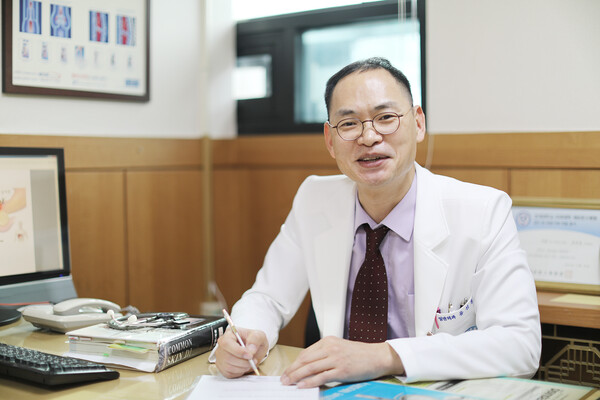During the spring season, many people tend to experience an increase in appetite. However, with advancing age, some individuals may also experience indigestion issues.
In particular, if you experience a sudden right abdominal pain accompanied by indigestion and bloating, you may have gallstones, or “cholelithiasis,” a condition in which stones form in the gallbladder.
What is choleithiasis?
Cholelithiasis, a medical term, is a condition in which unsaturated crystals gradually enlarge and form stones in the biliary system, which consists of the gallbladder, bile ducts, and liver.
Gallstones are divided into cholesterol gallstones and pigmented gallstones according to their composition.
Cholesterol gallstones are divided into pure cholesterol stones and mixed stones, and pigmented gallstones are divided into black and brown stones.
Gallstones can form anywhere in the biliary system, but they are most commonly found in the gallbladder.
The majority of these patients were middle-aged individuals between the ages of 40 to 69. This is likely due to the fact that as we age, the functioning of the gallbladder decreases and the solubility of bile, which is a digestive substance, also decreases.
There are several risk factors associated with the development of cholesterol gallstones, including advanced age, Western ethnicity, genetic predisposition, high-fat diet, obesity, and pregnancy.
On the other hand, pigmented gallstones are more commonly associated with Asian ethnicity, duodenal bile duct reflux, cirrhosis, and pancreatitis. In Korea, pigmented gallstones are relatively more prevalent compared to cholesterol gallstones.
Symptoms
Cholelithiasis is often asymptomatic and may be discovered incidentally during an ultrasound or abdominal CT scan.
However, the lack of symptoms is not a guarantee that the condition will remain benign, and when symptoms do occur, they usually manifest as pain in the upper right abdomen, where the gallbladder is located.
The pain experienced in the upper right quadrant of the abdomen is commonly referred to as "biliary colic," which is a squeezing type of pain that typically resolves on its own after several hours. However, many individuals with cholelithiasis may also experience symptoms such as indigestion, flatulence, loss of appetite, and bloating.
If the gallbladder becomes inflamed, the symptoms can become more severe.
If cholelithiasis is accompanied by fever or chills, it may suggest the development of cholecystitis or cholangitis as a possible complication. Additionally, the pain associated with cholelithiasis may sometimes radiate to the back and shoulders.
Although most cases of gallstones are asymptomatic and discovered incidentally, in about 20% of cases, they may cause abdominal pain and lead to complications such as cholecystitis.

Treatment
In cases where gallstones are causing symptoms, the recommended treatment is their removal. However, when gallstones are discovered incidentally and do not cause any symptoms, it is generally recommended to monitor the condition regularly rather than treat it immediately.
Nevertheless, even in the absence of symptoms, cholecystectomy (surgical removal of the gallbladder) may be recommended for certain cases. For instance, cholecystectomy is often recommended for gallstones larger than 2.5 cm in size, gallbladder polyps, thickened gallbladder walls, and in cases of gallstones in children.
Yoo Seon-kyeong, head of the Department of Surgery at Seran General Hospital in central Seoul, said the number of patients with gallstones was increasing due to the more prevalent Westernized diet among Koreans.
“Most patients have no symptoms, and even if they do, they often have stomach pain and confuse it with stomach cramps, and some visit the emergency room as a complication of gallstones,” he said.
Cholelithiasis cannot be treated with medication, and gallstones cannot be broken by ultrasound, Yoo added.
Crash diet, or drastically reducing calorie intake, can cause cholesterol gallstones, he warned.
“Some patients confuse them with urolithiasis and drink a lot of water or beer, but that is ineffective,” he said.
He emphasized that patients with gallstones should have a proper diet and receive professional treatment.
Related articles
- Eating habits deteriorating among Korean school kids
- Sore throat could indicate thyroid disease instead of cold
- How to avoid missing critical window of opportunity to treat Parkinson’s
- Night sweats? Hot flashes? Perimenopause more uncomfortable in warmer weather
- Side pain, high fever may indicate kidney infection, not body ache from cold
- Oily stool may be a warning sign of chronic pancreatitis progressing to cancer

